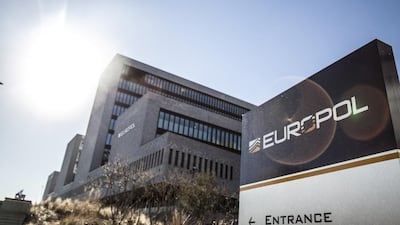Six people were arrested over a €30 million ($36.2m) cryptocurrency scam targeting hundreds of people across Europe.
Police in Germany launched an international investigation into a gang after citizens reported €7m losses from the investment fraud.
It led to raids in Bulgaria, Israel, Poland, North Macedonia and Sweden and the seizures of electronic devices, property, jewellery, high-end vehicles and about €2m in cash. A number of bank accounts were frozen.
Five people were arrested in Bulgaria and one in Israel.
The criminal network created online trading platforms advertising substantial profits from investments in high-risk options and cryptocurrencies.
"The criminal group ran at least four such professional-looking trading platforms, luring victims through advertisements on social media and search engines," crime agency Europol said.
"The members of the criminal group were posing as experienced brokers when contacting the victims via the call centre they had set up. The suspects were using manipulated software to show the gains from the investments and to motivate the victims to invest even more."
The fraud scheme, organised mainly by Israelis, was run from call centres in Bulgaria and North Macedonia.
The criminal network defrauded victims across Europe of an estimated €30m.
Victims in Germany suffered at least losses totalling €7m, while 300 complaints were filed in Spain.
The suspects laundered the illegal profits through bank accounts controlled or owned by shell companies in EU countries.
Europol experts cross-checked operational information against its own databases to provide leads to investigators in the field.
Last month, Europol said the continent was "at breaking point" because of the rise in serious organised crime, with cyber crime in particular becoming more sophisticated.


